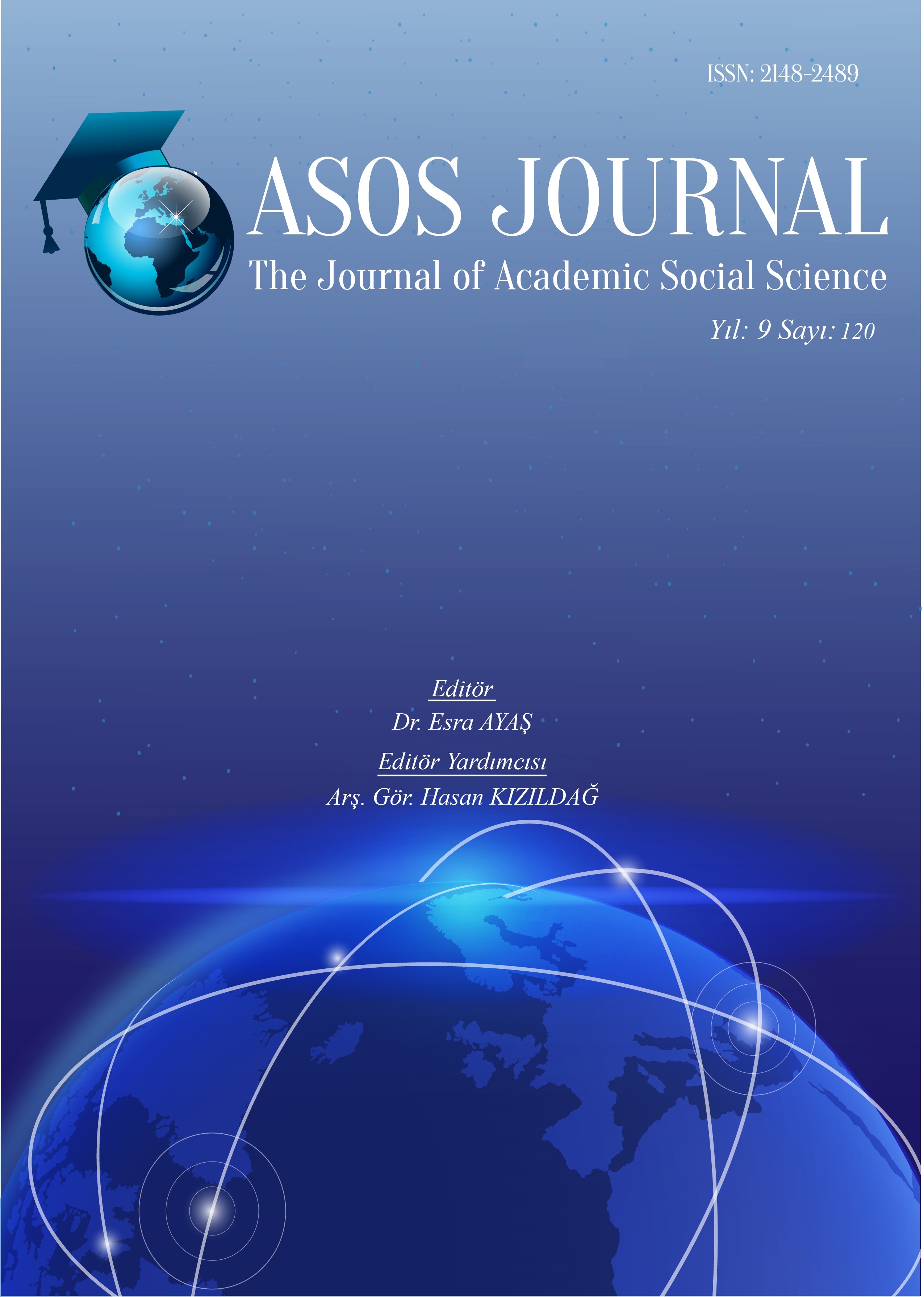Author :
Abstract
Bu çalışmada kurgulanan bir boşanma sürecinde, aile danışmanlığı tekniklerinin kullanılmasıyla ilgili bir vaka çalışmasına yer verilmektedir. Balıkesir İlindeki Ö. Ailesi ile birlikte sekiz seans olarak tasarlandığı varsayılan vaka çalışmasında, genogram, şemalaştırma, döngüsel sorular, aile konseyi, tamamlanmamış cümleler ve ilgi gösterme davranışı tekniklerine yer verilmektedir. Alanyazındaki bu teknikler ile birlikte çalışmada “Ben Neredeyim? Aklım Nerede?” isimli teknik geliştirilmiş ve bu teknik, vaka çalışmasının dördüncü seansında uygulanmıştır. Geliştirilen bu teknikte materyal olarak dört adet form oluşturulmuştur. Vaka çalışması sonucunda çalışmanın odağına koyulan “Ben Neredeyim? Aklım Nerede?” isimli teknik aracılığıyla olumlu sonuçlar elde edilebileceği ve vaka çalışması sonucunda ailenin boşanma sürecinden çıkabileceği düşünülmektedir. Sonuç olarak bu çalışmada “Ben Neredeyim? Aklım Nerede?” isimli tekniğin teorik temellere dayandırılarak geliştirilmesi ve ardından gerçek yaşamda aile danışmalığı uygulamalarında kullanılması önerilmektedir.
Keywords
Abstract
This study presents a case study on the use of family counselingmethods in a fictional divorce process. This case study, which is designed as eight sessions with the Family Ö in the province of Balıkesir, Turkey, includes genogram, schematization, circular questioning, family council, incomplete sentences and caring behaviour methods. Drawing on these methods in the literature, this study develops the method named “Where am I? Where is my Mind?” and applies this method in the fourth session of the case study. Four forms are developed for use as materials for this method. The results of this case study show that the method “Where am I? Where is my Mind?” will potentially yield positive outcomes and help the family change their mind. In conclusion, this study suggests improving the method “Where am I? Where is my Mind?” based on theoretical premises and then benefiting from it in family counseling practices in real cases.
Keywords
- Baran, G. & Yurteri Tiryaki, A. (2020), Aile yaşam döngüsü. G. Baran (Ed.), Aile Yaşam Dinamiği içinde (s.1-24). Pelikan.
- Kesici, Ş., Mert, A., Bayrakcı, E. K. & Kiper, C. (2015). Vaka Örnekleriyle Birlikte Aile Danışma Kuramları ve Teknikleri. Ş. Kesici (Haz.). Nobel.
- Kesici, Ş., Mert, A., Girgin Büyükbayraktar, Ç. & İlgün, E. (2017). Aile Terapisinde Kullanılan Teknikler (5. Baskı). Nobel Akademik.
- Nichols, M. P. (2013). Aile Terapisi, Kavramlar ve Yöntemler (5. Baskı). Kaknüs.
- Oryan, S. (2014). The family council: Different styles of family deliberation in two cultures. The Journal of Individual Psychology, 70(2), 128-147.
- Watts, R. E. (2003). Selecting family interventions. D. Kaplan vd. (Ed.), Family Counseling For All Counselors içinde (s. 121-160). CABS Publications.
